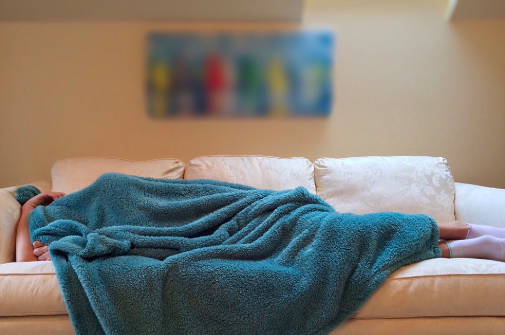Challenges pertaining to sleep loss are common among children and adults diagnosed with ADHD. In fact, there seems to be a cyclical relationship between poor sleep and the behaviors associated with ADHD. Poor sleep can lead to problems with behavior and cognitive functioning which, in turn, may lead to further disturbances in sleep patterns.
The effects of ADHD on sleep loss and the impact of sleep loss on behaviors and cognitive functioning can make it difficult to discern the origin of the problem. To tease the two apart, it is helpful to consider the ways that sleep patterns and ADHD might interrelate.
The Impact of Sleep Disorders on Behavior
Problems with attention are commonly seen in both ADHD and sleeping disorders. Both are also associated with problems of hyperactivity, impulsivity and general behavioral issues. It is possible that, in some cases, what may appear to be ADHD could, in fact, be the symptoms of a sleep disorder.
Several sleep disorders have been associated with behavior-related problems. Restless Leg Syndrome is an example of a sleeping disorder with symptoms that may align with those of ADHD. The disturbance of sleep patterns caused by Restless Leg Syndrome can potentially lead to difficulties concentrating and/or with behavioral control, as well as cause fidgeting and restlessness throughout daytime activity. Sleep Disordered Breathing and Circadian Rhythm Sleep Disorder also cause ADHD like symptoms.
Due to the similar symptoms found in both sleep disorders and ADHD, it is always a good idea to have screening done for sleep disorders during any initial ADHD testing.
The Effects of ADHD on Sleep Patterns
It is also possible that ADHD could be the underlying cause of sleep-related difficulties. During sleep, a person diagnosed with ADHD may be more susceptible to disturbances in their external environment. Additionally, for the person with ADHD, a poor night’s sleep might start with trouble settling down, possibly leading to a late bedtime and eventually interference with sleep pattern or circadian rhythm. Beyond bedtime resistance, stimulants, co-existing conditions such as anxiety and even ADHD medication can all cause issues with sleep patterns.
Management of Sleeping Issues Caused by ADHD
The seemingly endless cycle of unhealthy sleep patterns and heightened ADHD symptoms can be taxing on both an individual and a family. There are several tactics, though, that can help manage problems with sleep.
One way to get a head start toward improving sleep is by implementing a bedtime routine. For individuals with ADHD, tasks might be put off during the day, then ends up being done late in the evening. This increases brain activity late at night and can be a leading factor in the inability to fall asleep, especially when doing academic work. Those suffering from this practice may avoid the complications by setting consistent time, earlier in the evenings, as a finishing point for any such activity. Then, slowly transition into a bedtime routine.
Using sound machines is another tactic to help alleviate sleep problems. For a person with ADHD, the simple consistent noise from a sound machine may drown out other distracting noises. Thereby enabling the person to fall asleep and stay asleep.
Exercise, done early in the day can also aid in achieving a healthy sleep pattern. The timing of exercise is important to prevent spiking energy levels right before sleep. Additionally, getting good exercise enables the body to burn more energy throughout the day, helping to counteract problems with restlessness.
Maintaining healthy sleep patterns can be challenging for a person with ADHD. If difficulty sleeping persists, discussing a plan of action with your doctor or counselor might be a useful next step.
References
- (n.d.). ADHD, Sleep and Sleep Disorders | CHADD. Retrieved from http://www.chadd.org/Understanding-ADHD/About-ADHD/Coexisting-Conditions/ADHD-Sleep-and-Sleep-Disorders.aspx
- (2018, January 31). Sleep Disorders in Children | ADHD and Sleep. Retrieved from https://childmind.org/article/adhd-sleep-disorders-misdiagnos

